How Zomato Became One of the Most Favorite Food Delivery Apps in India.
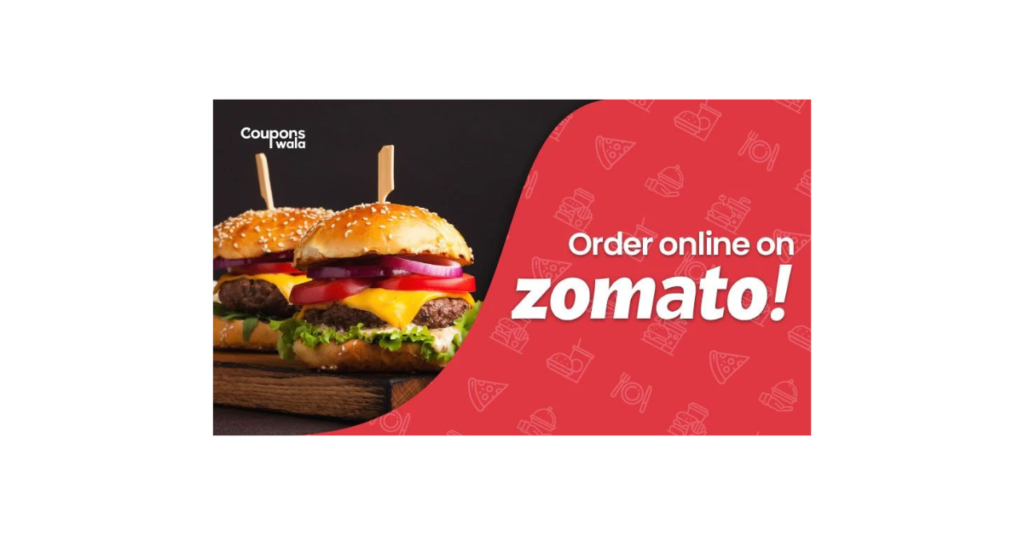
Nowadays, people are very ambitious about their lifestyle. Just look around, and you’ll notice that most new brands or businesses start with a clear vision of becoming a lifestyle brand, whether it’s in clothing, food, or other industries. Zomato began with a similar vision: to become India’s biggest food delivery service.
The company started in 2008 but was officially launched publicly in 2015. The founder, Deepinder Goyal, is an IIT graduate. He began his first job at Bain & Company as a Senior Associate Consultant in January 2006. During his tenure at Bain, he founded FoodieBay.com, which later became Zomato.com in 2008.
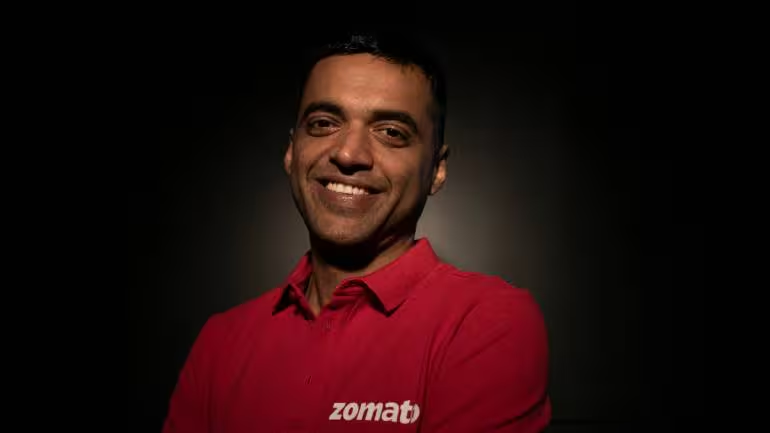
Deepinder noticed a problem in his corporate job at Bain: people spent a lot of time standing in long queues to collect food, and most employees had no choice but to eat the company-provided meals. Recognizing this gap, he identified a problem and created a solution through his venture, FoodieBay.com, which was later rebranded as Zomato.com.
Initially, Zomato was like any other food delivery service. But as competition grew, the company realized it needed to take things seriously and operate like a top competitor. Like many startups, Zomato raised funds from different investors to build a profitable business.
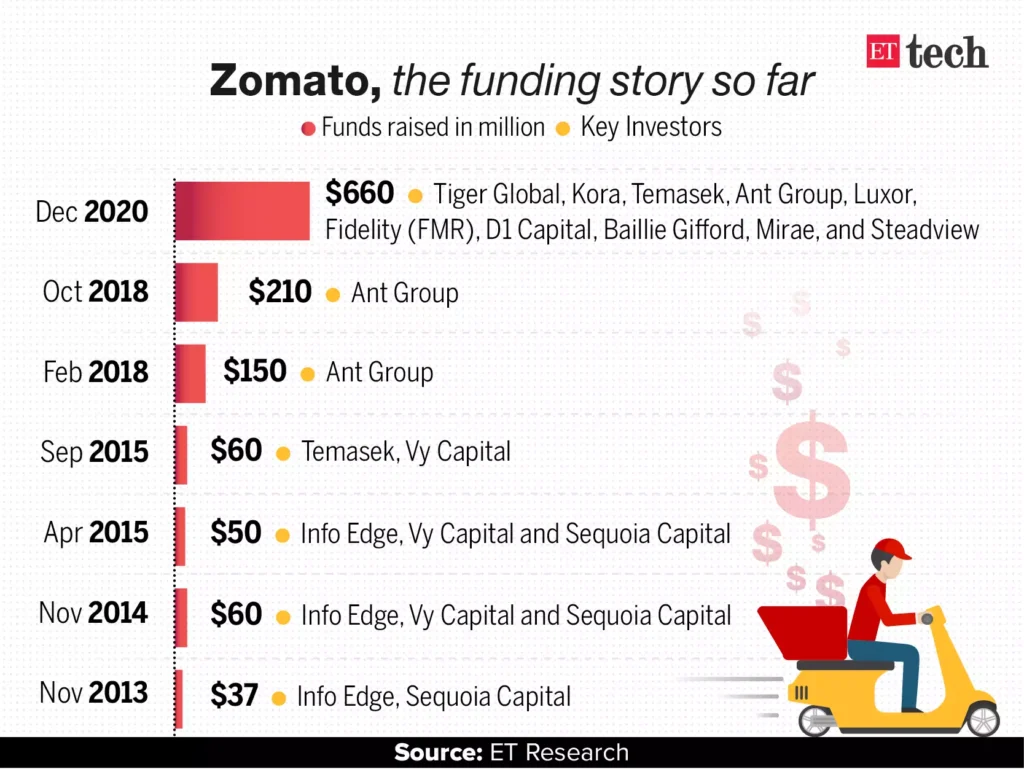
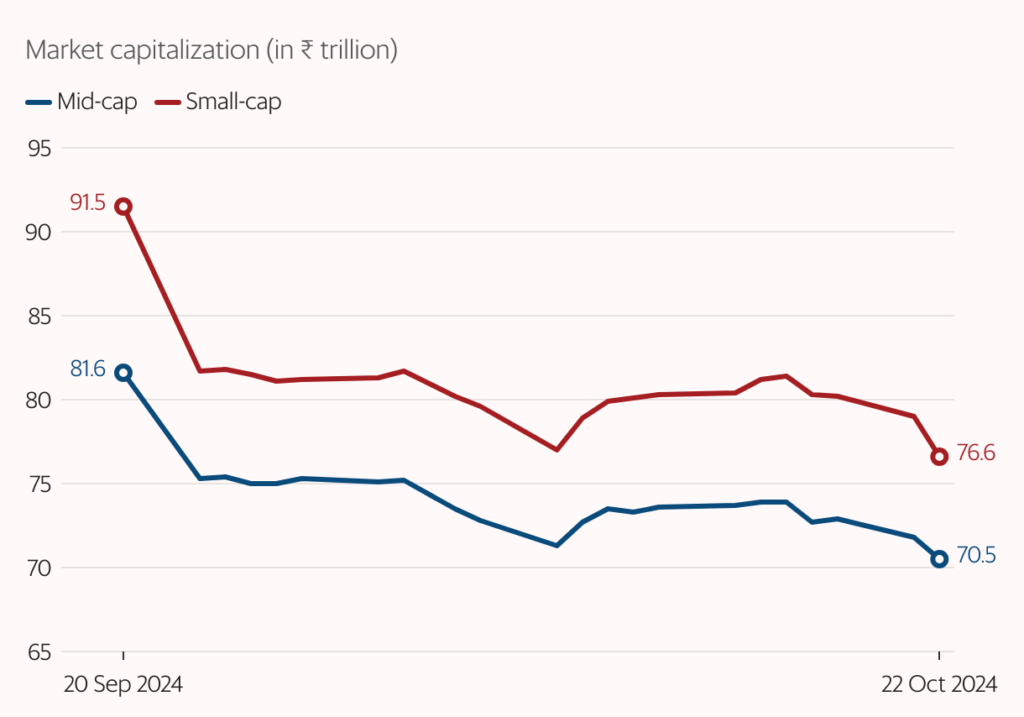
However, the COVID-19 pandemic brought unprecedented challenges. Zomato faced fierce competition and struggled to survive as nearly 90% of its revenue vanished due to restaurant closures and nationwide quarantines. As a food delivery service heavily dependent on restaurants, Zomato was severely impacted.
During this tough period, DoorDash from the USA provided financial support to help Zomato survive. However, the company still faced significant losses. Deepinder made a bold decision to take Zomato public with an IPO, which turned out to be a major turning point. Against expectations, the IPO was a resounding success, with Zomato’s stock gaining almost 86% during its debut.
Despite this success, Zomato faced further challenges, such as the Russia-Ukraine war, which slightly affected its operations. The company adapted by acquiring businesses, such as Blinkit, to venture into quick commerce. Blinkit specializes in “dark stores,” which are mini warehouses ranging from 3,000-8,000 square feet, enabling fast delivery of larger products.
Zomato also expanded to 225 cities and made tough decisions, such as increasing restaurant commissions and laying off 40% of its workforce to reduce costs and dominate the market. Despite the ups and downs, Zomato made a revenue breakthrough in the first quarter of 2022 and started new ventures like Blinkit’s dark stores.
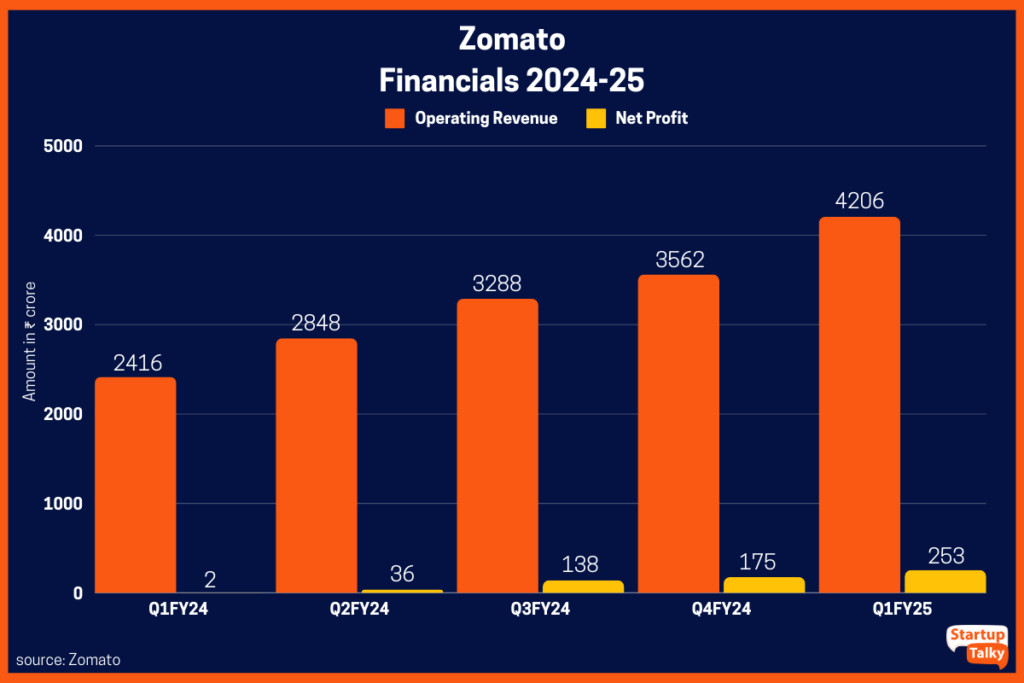
Nowadays, in the era of digitalization and AI, Deepinder Goyal has introduced innovative technologies to enhance customer satisfaction and engagement. Features like 30-minute delivery have revolutionized the food delivery sector, and the use of drones to bypass traffic is another groundbreaking step by Zomato.
When it comes to their marketing team and strategies, Deepinder once revealed that none of their team members had a formal marketing degree. Instead, he hired individuals who were passionately driven and creative in the field of marketing. Their innovation is evident in Zomato’s witty and relatable notifications, which often feel as personal and engaging as a message from your best friend—or even your girlfriend!
Reflecting on leadership, a great quote comes to mind: “As a CEO, you don’t run the business; you hire people who can run the business better than you.” Deepinder exemplifies this philosophy, excelling as the CEO of Zomato by empowering his team and fostering an environment of creativity and innovation.
Today, Zomato is valued at $16 billion and operates not only in India but globally. The company’s mission is to deliver people’s favorite dishes to every corner of the world. Zomato’s food delivery business has grown by 53% year-on-year, showcasing its resilience and innovation.
What Have We Learned From This Story?
- The power of a business idea.
- The importance of adaptability to survive tough times.
- Strategies to overcome and dominate competition.
Share your thoughts in the comments below! Thank you for reading this inspiring story.

